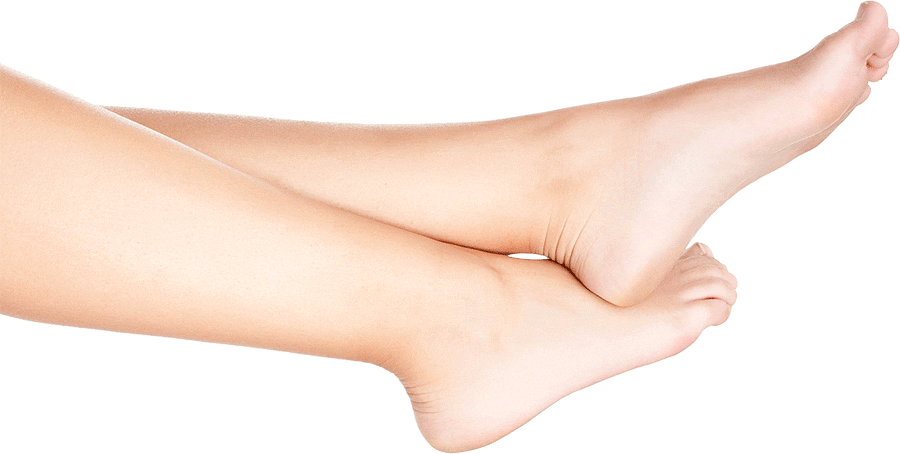
Easy Exercises To Help Relieve Plantar Fasciitis Pain

Easy Exercises To Help Relief Plantar Fasciitis Pain
PLANTAR FASCIITIS
Plantar Fasciitis is an inflammation caused by excessive stretching of the plantar fascia. The plantar fascia is a band of fibrous tissue that runs along the bottom surface of the foot. It helps absorb shock and supports the arch of the foot. Too much pressure on your foot due to daily physical activities can lead to inflammation of the Plantar Fascia which causes pain in the bottom of the heel.
People who are at high risk of developing Plantar Fasciitis:
- If you’re overweight or obese
- If you are pregnant
- If you are a long distance runner
- If you have an active job that requires you to stand or walk long hours
- If you have structural foot setbacks like high arches or flat feet
- If you wear uncomfortable and unsupported shoes
Common Symptoms:
- Pain in the bottom of the heel or mid-foot area
- Pain worse in the morning when you get out of bed
Easy Exercises That Help Relieve Plantar Fasciitis Pain
These exercises will help keep your feet strong and help reduce foot & ankle pain
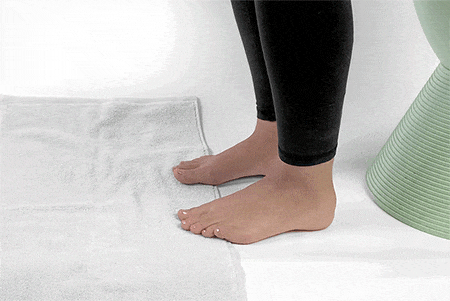
1. Towel Curls
Sit down in a straight-backed chair with your heels under your knees. Place your foot flat at the end of the towel and use your toes to pull the other end of the towel towards you. Make sure your heel stays where it is while you move a little bit of towel each time you extend and pull back. Repeat 4-5 times and move in the opposite direction.

2. Ball Roll
Sit on a straight backed chair and place a tennis ball on the floor near your feet. Move your foot on top of the tennis or golf ball and roll it around it. Use the ball to massage the bottom of your foot for 3-5 minutes. You can increase or decrease the pressure on the tennis ball as needed.
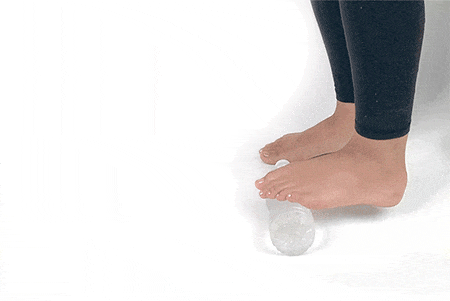
3. Frozen Bottle Roll
Place a bottle of water in the freezer until it turns into ice. Roll the frozen bottle under your foot similar to ball roll. This helps reduce inflammation.
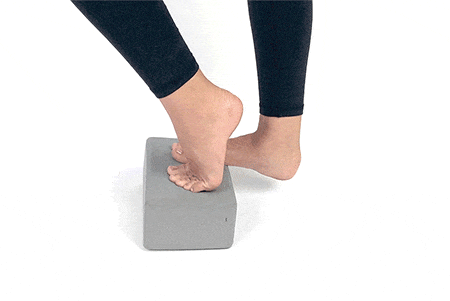
4. Heel Raise
Stand up straight and place your hands on the back of a chair for support. Raise your heels and try to stand on your toes to stretch your arch. Hold this position for 10-20 seconds and lower your heels back down slowly. If you can hold your balance, try the same exercise on a step.
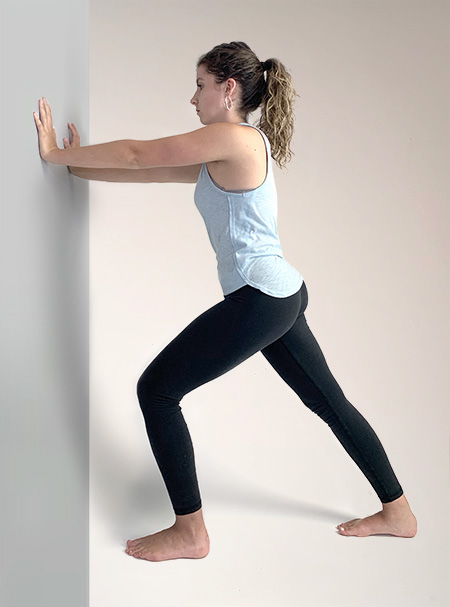
5. Calf stretch
Stand up straight at an arm’s length from the wall. Make sure you place your hands on the wall for support. With your feet pointing straight ahead, place one foot in the back of the other. The front leg should have a bent knee and the leg behind it should have a straight knee. Gently bend forward with your right heel on the ground. Hold the stretch for 15 to 30 seconds and reverse the position of your legs to repeat the stretch.
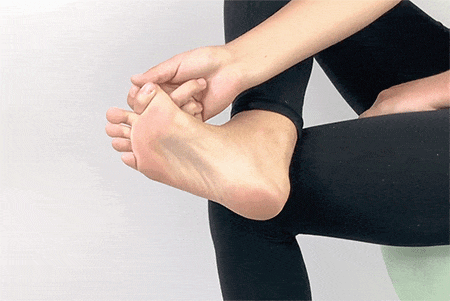
6. Big Toe Stretch
Sit up straight on a chair and cross over one leg over the other. Make sure your other foot is flat on the ground. Hold your big toe with your fingers and gently move it towards you and away from the other toes. Hold this stretch for 15 seconds and move it in the opposite direction for 15 seconds. You can repeat this 3-4 times on each foot.
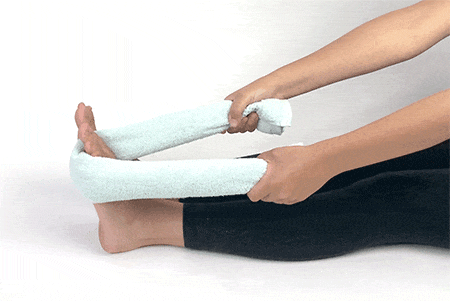
7. Towel Stretch
Sit up straight on the ground with your legs extended and knees straight. Place a folded towel around your foot and gently pull it towards you. Hold it for 15 to 30 seconds and repeat 3-4 times on each foot.
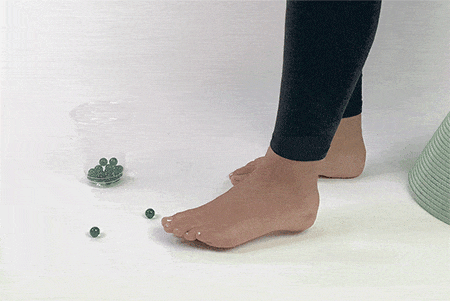
8. Marble Pick Ups
Place marbles and a cup on the floor. Use your toes to pick up one marble and slowly place it in the cup. Repeat it 7-8 times on each foot.
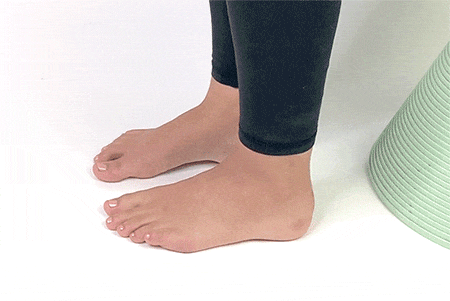
9. Toe Splay
Sit up straight on a chair and place your feet flat on the ground. Spread your toes away from each other and hold the stretch for 5-7 seconds and release. You can repeat this 5-6 time

10. Ankle Circles
Sit up straight on a chair and lift your foot to draw circles using the big toe. Draw circles using your big toe clockwise and anticlockwise.
Always consult your physician before beginning any exercise program. This general information is not intended to diagnose, treat, or cure any medical condition or to replace your healthcare professional’s advice. If you experience any pain or difficulty with these exercises, stop and consult your healthcare provider.
How Aetrex Orthotics Help With Plantar Fasciitis?
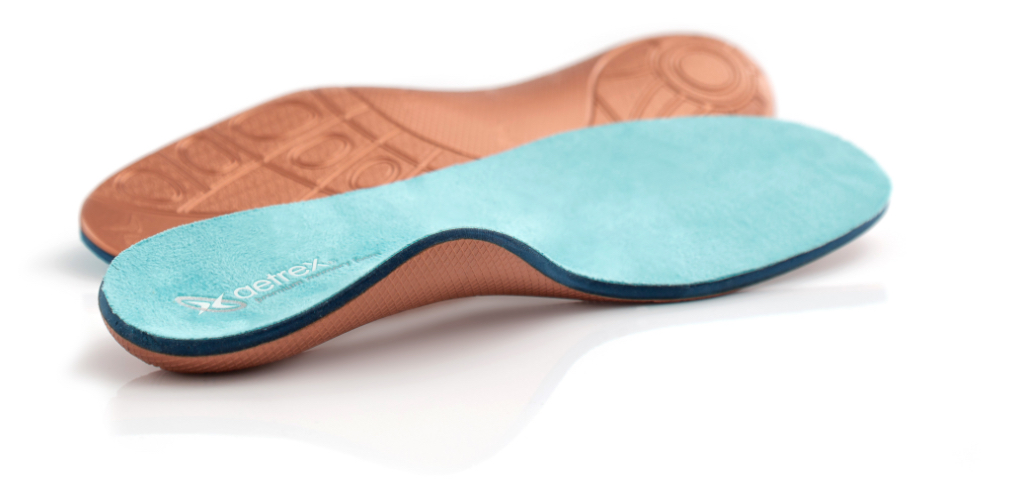 Try it Now
Try it Now
Alignment
Proper alignment helps minimize over- pronation and reduces stress on the plantar fascia, knees, hips and back.
Signature Arch Support
Our arch support is strategically placed further back to provide the right balance and support to the most weight bearing part of the body and it provides a strong foundation for the plantar fascia to help keep it from stretching which usually occurs when you stand or walk.
Posted Heel
Posted heel helps to control overpronation to prevent foot, knee and back pain.
